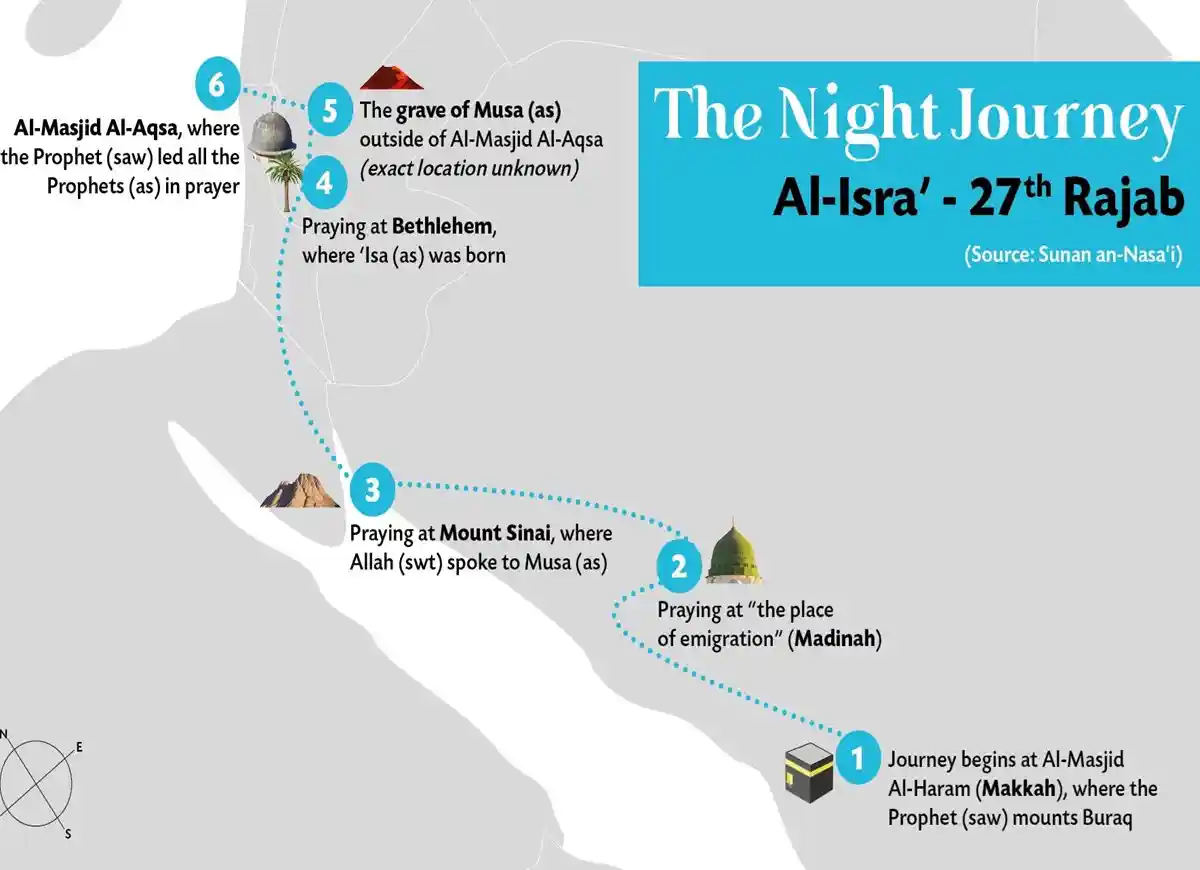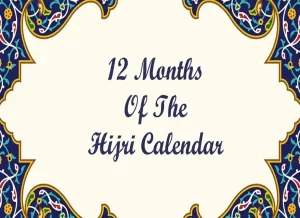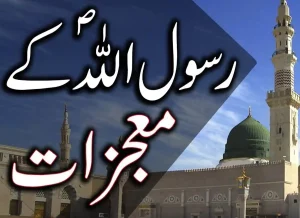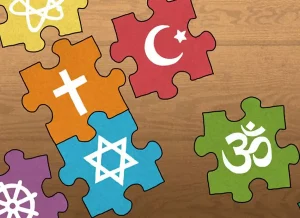Isra and Miraj: Exploring the Divine Revelation and Spiritual Significance of the Isra and Miraj Event” Israa and Miraj are thought to be two halves of a mysterious journey that the Prophet Muhammad undertook in a single night, traveling from Makka to Jerusalem and then ascending into the sky.
Israa is an Arabic term that, according to Surah Al-Israa in the Quran, alludes to the Prophet Muhammad’s incredible journey by night from Makka to Jerusalem, and more precisely, the location of the al-Aqsa Mosque in Jerusalem.
It is thought that the Mi’raj, who was his ascent to the sky, had before the voyage. This expedition was thought to have taken place about a year or two before to the Prophet Muhammad moving Makka to Madina on the 27th day of Rajab, according to certain Hadith experts.
Muslims perform their nightly prayers in celebration this evening. the night and, in many Muslim countries, they use candles and electric light to illuminate their cities.
The opening verse of the Quran’s chapter 17 Al-Israa, which makes reference to this voyage, is as follows. It is and Sayyid Abu Ala Mawdudi’s in-depth commentary on the verse.
Holy is the One who, in the evening, led His servant from the Holy Mosque of Makka to the next mosque, which is located in Jerusalem. He was fortunate to get some of our indications from our surroundings. 1. It is true that only He possesses all hearing and sight. (Surat 17:1)
This alludes to an occasion denoted by the terms Isra’ (Night Journey) and Mi’raj (Ascension). Most traditional traditions, especially the genuine ones, hold that the incident took place a year before the Hijrah.
The most thorough narratives about it are recorded in the writings of the Hadith and Sirah, and they are related by up to 25 Companions. The reports from Anas ibn Malik, Malik ibn Sa’a’ah, Abu Dharr al-Ghifari, and Abu Hurayrah are the most thorough. ‘Umar and ‘Ali the ‘Abd Allah ibn ‘Mas’ud Abbas ibn ‘Abd Allah, Abu Sa’id al-Khudri, Hudhayfah ibn al-Yaman, ‘A’ishah, and other companions of the Prophet have also recounted a few other details.
This verse in the Quran just reports that Prophet Muhammad was carried from his house in the Ka’bah to the mosque in Jerusalem. It goes on to say that this happened for the purpose of enabling God to “show Him the signs of His presence”.
Furthermore, The Quran makes no mention of particulars. However, according to hadiths, Gabriel removed the Prophet from the Ka’bah in the evening. Buraq was used to transport Ka’bah up to Jerusalem’s largest mosque. The Prophet and the other Prophets prayed when they arrived in Jerusalem.
(‘Bab Fard al-Salah wa Dhikr Ikhtilaf al-Naqilin…’ -Ed.) Al-Nasa’i, Sunan, K. al-Salah After that, Gabriel took him to heaven, where he encountered other distinguished prophets in different heavenly domains. Refer to al-Nasa’i, Sunan, K. al-Salah, ‘Bab Fard al-Salah’ – Ed. When he at last succeeded in reaching the summit of the sky, God’s Divine Presence gave him a prize.
The Prophet was given many directives at that time, one of which was that he must pray five times a day. (‘Bab al-Mi’raj’ by K. Manaqib al-Ansar Al-Bukhari; ‘Bab Kallama Musa Taklima’ by K. al-Tawhid – Ed.)
After that, the Prophet descended from heaven and made his way back to Jerusalem and the Makka Holy Mosque. According to a number of versions, the prophet was given the opportunity to see Heaven in both Heaven and Hell. (Ibn Hisham, Sirah, vol. I, p. 404 – Ed.; Al-Bukhari, K. al_Salah, ‘Bab Kayfa Furidat al-Salah fi al-Isra’)
Remember that the most trustworthy reports state that the Prophet told the Makka people what happened on this incredible journey the following day. The story was funny to the unbelieving throughout. Al-Iman, K., Muslim, ‘Bab Dhikr al-Masih ibn Maryam’ – Ed. In fact, the odd character of the narrative caused some Muslims to question their faith as well. (In addition to al-Qurtubi’s comments on surah verse 1 Ed., see Ibn Hisham, Sirah, vol. I, p. 398.)
The incident’s details as reported in the Hadith add to the Quran’s description of the occurrence. On the grounds that it contradicts the Quran, there is no reason to reject all of this additional material.
However, one shouldn’t be labeled as a non-believer if they aren’t persuaded and can’t accept some of the Ascension-related facts contained in the Hadith as true and trustworthy. On the other hand, a person will be regarded as having left Islam if he totally rejects any part of the story that is specifically mentioned in the Quran.
What was the trip’s objective? Was it a period of time when the Prophet was awake or when prophets slept? While residing there, did he embark on a physical journey or did he have spiritual visions? We believe that the Quran’s text itself provides the answers to the aforementioned questions. The first line: “Holy is He Who carried His servant in the evening from His Holy Mosque to the farther Mosque…”
It is evident from (verse 1) that it was an unprecedented event brought about by God’s boundless capacity. The phrase “Holy is He Who carried His servant in the night…” and “carried His servant by night,” which declares that God is without flaw or fault, must come before the possibility that you could be able to see the nature of events that are mentioned in connection with the event—whether through dreams or through the use of intuition.
This is not enough to make the event amazing. If the intention behind this statement was to demonstrate that God could grant man the ability to see visions in dreams or to get knowledge from within, then it is completely nonsensical.
As per our understanding, the data obtained from the dream vision or experience was an actual travel, and the specific observation was an observable one. Everything hinged on God’s will that the prophet receive revelations of truth in this way.
Now, let’s carefully study the topic. The Quran makes it very plain that, by God’s grace, the Prophet left Makka for Jerusalem and, at night, returned to Makka (clearly without using any kind of aircraft). If this is the case, what justification is there for discounting the other incident details that may be found in the older sources as unachievable?
If claims are made that some activities are impossible and others are within the realm of possibility and have been carried out by living things using their natural powers, then those claims make sense.
However, if it is evident that God performed anything that was beyond his ability, the only people who might possibly have reservations about these deeds would be those who do not believe that God is the all-powerful God.
The origins of the episode are a cause of great concern for those who reject the Hadith in its entirety. I think there are only two arguments that are really worth considering.
First, it is argued that the features of the Ascension sagas suggest that God is confined to a certain region. It can be argued that the Prophet would not need to be transported in order to sense God’s presence if this were not a problem. God.
The prophet’s ability to see both Heaven and Hell and to see people punished for their sins—even before they were judged by God—is also up for question. What was the rationale of punishing people before the Day of Judgment arrives for everyone?
That being said, their arguments lack substance. The first argument should be rejected on the grounds that God must use limited, time- and space-bound means to connect with His creatures, despite the fact that God transcends both of these dimensions. This is because human beings are inherently limited.
Therefore, even though God’s speech differs from the communication methods employed, He nonetheless employs the same means of communication that His creatures can understand when speaking with them. Similar to how God sends someone to particular spots and lets them view what they need to see in order to convey to them the signs of His enormous empire. Because human vision is limited, it cannot perceive the universe in the same manner as God.
Man is obligated to go to a given place, even though God does not need to go there to view what is there. The same holds true for having a direct conversation with God, the Creator.
Even though God is not limited to any one place, man needs to be able to sense His presence in a particular area where the full force of His existence can be concentrated. The unlimited omnipotence of God is beyond the reach of humankind.
Examining the second argument now. This is a misconception as well because the objects that were seen to the Prophet symbolically mirrored some truths. An example of an allegory for a cunning statement is a fat ox that couldn’t fit back through the little opening it had passed. (See comments on Bani 17:1 (Ed.) and Ibn Kathir, Tafsir.)
The second parable concerns fornication—that is, the decision to eat bad food while there is fresh, clean meat available to them. Locat.cit Refer to Ibn Hisham, volume 1, page 406 – Ed. This also applies to the penalties that sinners will endure in the Hereafter; these serve as a foreshadowing of the suffering they will experience in the Hereafter.
The most crucial aspect of The Ascension to comprehend is that it belongs to a class of experiences that all Prophets can witness as part of their mission and position: the earthly and celestial manifestations of God’s rule.
It is feasible to physically perceive the reality that prophets are obligated to perceive if the obstacles that impede human vision are removed. Prophets are required by their faith to call people to trust in the Unseen. This is done in order to set the Prophets apart from speculative philosophers.
The claims made by philosophers are basically speculative because they are predicated on conjecture. A philosopher would be hesitant to attest to the veracity of his claims if he were to recognize his true viewpoint, which is the philosophy of a philosopher.
The statements made by the Prophets, however, are based on their own knowledge and experience. They can testify in front of others with complete assurance that the information they share is based on reality that they have firsthand experience with.
Note: * The Prophet rode a heavenly horse known as Buraq on his nightly journey from Makka to Jerusalem and ultimately to Heaven. (For this nighttime trek, see q.v. Mi’raj.)
Categories: PRAYER (Salat), ALMS (Zakat), SAWN (Fasting) HAJJ (Pilgrimage) & DUA (Supplications), Hadith and Tafseer, The Holy Quran, Quran Jaz 1- 114
Topics: Ushr and Zakat, Hijab, Arabic Corner, Faith, Islamic History, Biography, Sirat ul Nabi PBUH, Islamic Studies, Halal & Haram
Hajj:
- What is Ihram Haji ? | Hajj and Umrah-Quranmualim
- Importance of The Days of Zil Hajj | The Day of Arafah
- Define Menses during Hajj and Umrah | Mina in Makkah
- The Holy pilgrimage of The Messenger | The Rituals of Hajj
- 3 Types of Hajj | Tamattu | Ifrad | Hajj Qiran – Quranmualim








